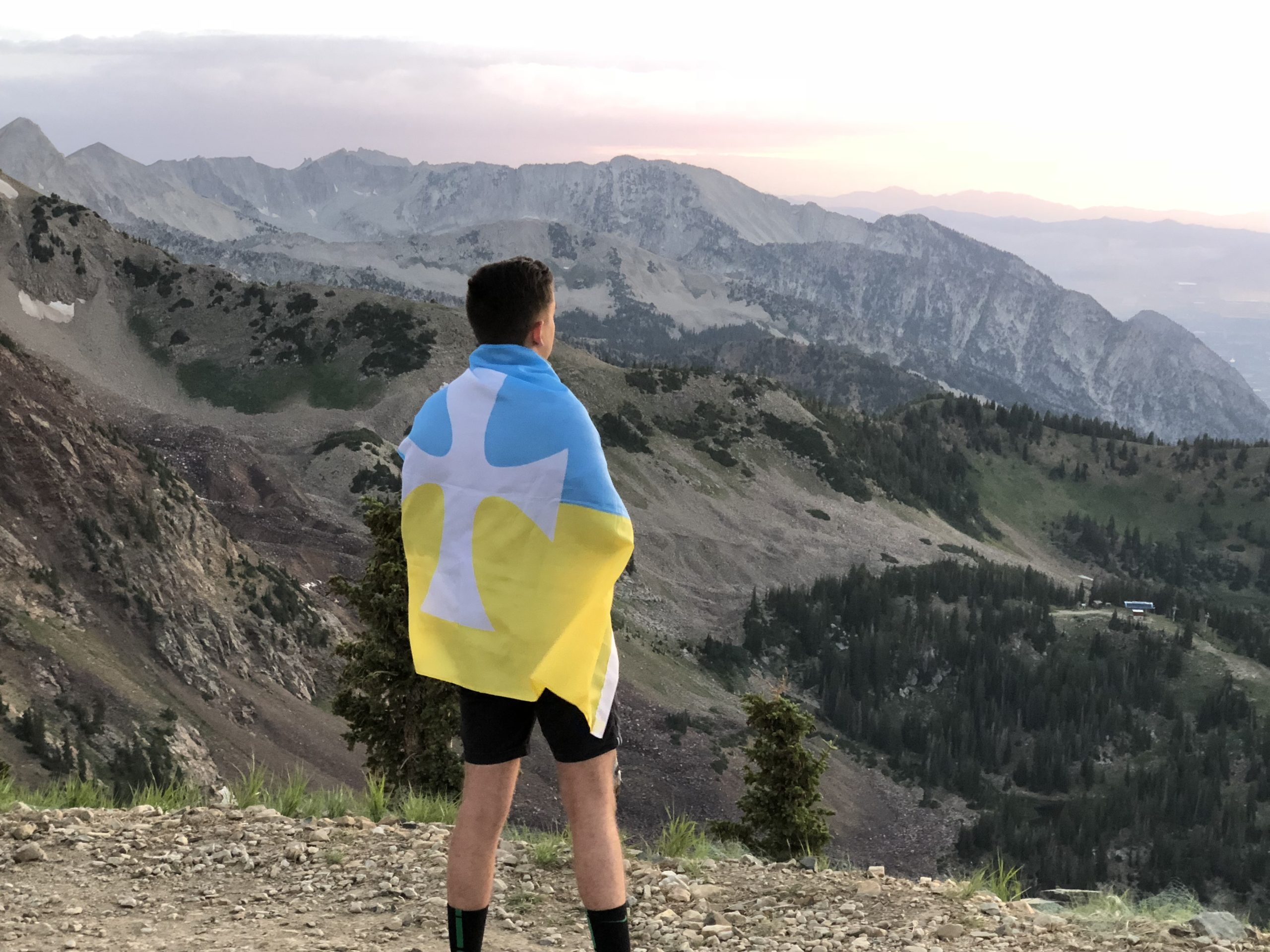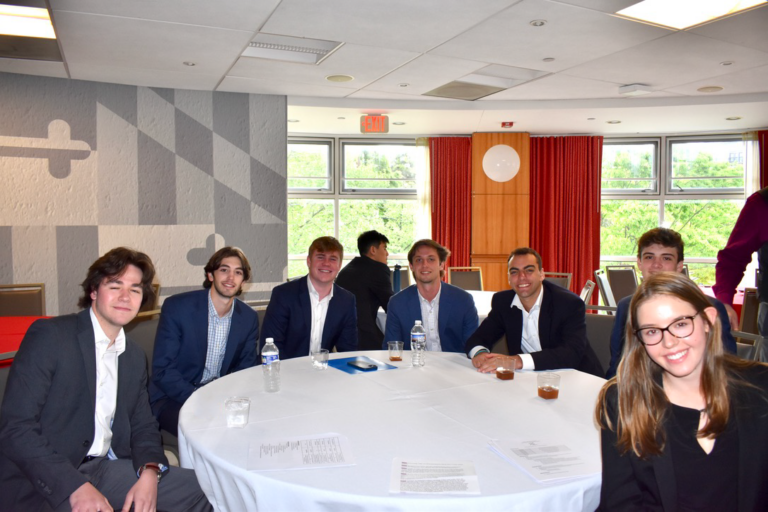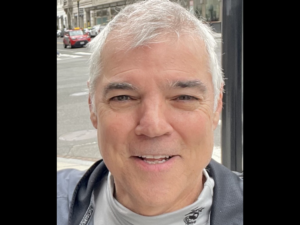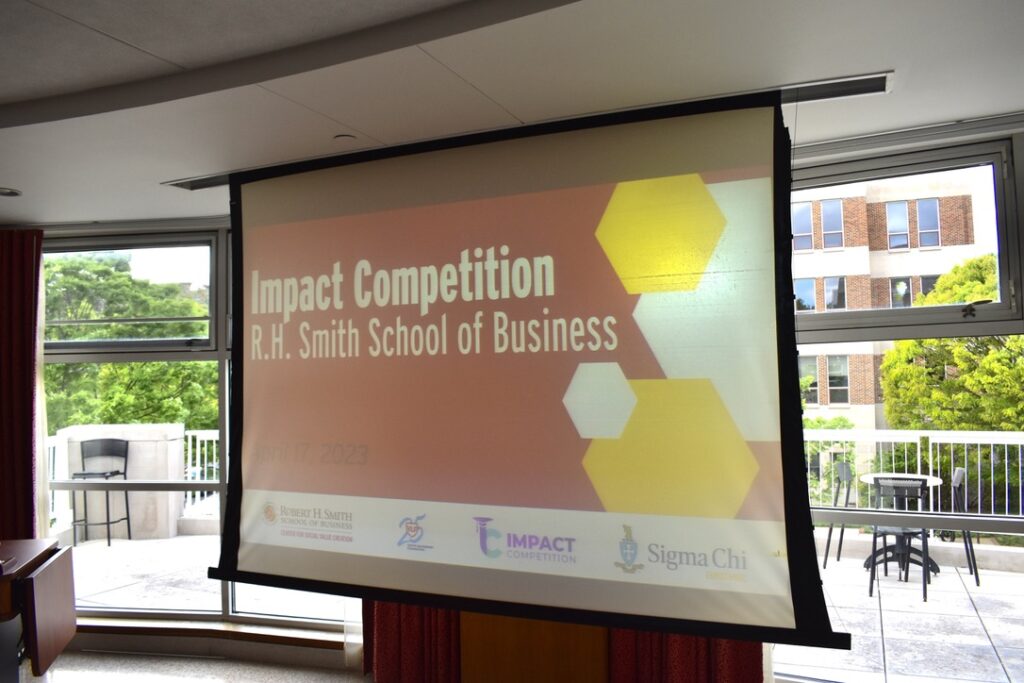Fraternity
- 1714 Hinman Ave. Evanston, IL 60201
- headquarters@sigmachi.org
- Directory

BY ASHLEY SZATALA
The estate of a Maryland alum left the chapter a sizeable donation. In turn, the chapter used the money to establish a class open to all students that teaches social value creation.

Transformational leadership is the practice by which leaders inspire and empower others to innovate and create change that will positively impact the Fraternity and ultimately the world. The transformational leader first must learn to manage self before being able to lead others and cultivate action within their community and campus.
The Maryland chapter’s Gamma Chi Education Foundation knew it had to get creative with how to spend its money on the undergraduates in 2020. Scholarships and operational assistance were nice, but the men wanted something that was not only going to enhance their resumes, but also have a social impact. The solution is a nearly two-year-long effort that involved a partnership between the Gamma Chi Education Foundation and the University of Maryland’s Robert H. Smith School of Business to establish a class called the Value Creation Challenge. It is a unique academic experience that goes beyond the chapter house to partner with a new local nonprofit or business each semester to teach students social responsibility and also create a new opportunity for how Greek-letter organizations can affect change on their campuses and communities.
Greg Schaub, MARYLAND 1982, with the Gamma Chi Education Foundation Board of Directors, discusses the class and its creation below.
How was the Gamma Chi Education Foundation started, and how did that lead to the creation of an educational course for University of Maryland students?
We had an alum, Jack Stringer, MARYLAND 1957, who passed away [in 2011] and left us a large sum of money. We’ve had the benefit of other alumni donations, but it’s primarily the Stringer family gift that allowed us to form a foundation in 2014. In the past we spent it on scholarships and career training for the actives, along with operational items. But then COVID-19 hit, and we knew that we had to think about different ways to engage the actives. We got feedback from the chapter actives and came away with a couple of impactful themes. One is they wanted to be involved in educational experiences that would be unique enough to be resume worthy. They also wanted to be involved in projects that are socially redeemable.
With that kind of background, [in 2021] [Order of Constantine Sig] Tom Burton, MARYLAND 1984, who is the foundation president, put a call into the incoming president at the University of Maryland, a gentleman named Darryll Pines. We communicated with him that we wanted to use a portion of our funds to create some kind of impactful partnership between the Fraternity and the school. He was very supportive of that idea, but we didn’t want it to just be a donation to the school or even a scholarship that maybe benefited one person. We wanted to have a broader impact.
Eventually, we connected with a faculty sponsor from the [Robert H.] Smith School of Business, and we landed at the Center for Social Value Creation, which is inside the business school. We came up with this idea of creating a class through the Center for Social Value Creation. The idea was to create a class where students learn problem solving and critical thinking, but then go the extra step to apply those skills to an outside organization. We got a faculty sponsor, Dr. Oliver Schlake to help guide our partnership with the school and things like getting an actual syllabus written, getting it approved, and getting it through the Maryland higher education and administration and into the schedule. That took us a good year.

Now that it’s in place, we take the sort of traditional classroom learning and superpower it so that it leads to hands-on experience working with outside companies. And this is something that Dr. Schlake has a passion about. He’s from Germany, and in Germany, [it’s common that] companies and organizations go to universities and say, “Here’s our problem. You have smart people, you have research, you have IP capability. Help us solve it, and we’ll fund that for you.” So this is a little bit in that spirit, even though we’re seeking the companies out.
Tell me more about the class.
We had our first class last fall. It’s a 400-level class through the business school but is open to all students, which was important to us. The outside company was Patent Hacks, a startup that has a low-cost way of allowing people to apply for patents, which can be really costly and time consuming. This spring semester they’re working with the Washington, D.C.-based nonprofit Youth Leadership Foundation. Our foundation also provides a fellowship for two actives at the Gamma Chi chapter. Their job is to be an ambassador to promote the class around the school and within the Greek[-letter] system. We want to get other fraternities and sororities involved to grow enrollment and provide additional funds for student internships.
"The point of the whole thing is that it's a different model. It's just not donating money to the school. It's taking the money in a purposeful way and creating a learning experience that also has an element of outside-the-classroom experience, which we think is meaningful to our undergraduates."
~Greg Schaub, MARYLAND 1982
How has the university and undergraduates’ reception been to the class?
I felt like the support we got from the school was terrific. The first time we set the class up, it was a little hard because students are busy, and they’ve got a lot of other priorities. But the spring class was at capacity, so momentum is definitely building. Cole Musser, MARYLAND 2023, and Baasil Saleh, MARYLAND 2024, were awarded the first two fellowships that we granted. They played a key role in our success, and now we have many more applicants from the Gamma Chi chapter applying for next year’s fellowships.
The partnership between a university and Greek-letter organization is unique. Do you hope this serves as a model for others?
The point of the whole thing is that it’s a different model. It’s just not donating money to the school. It’s taking the money in a purposeful way and creating a learning experience that also has an element of outside-the-classroom experience, which we think is meaningful to our undergraduates.
If we do this right, it’ll reflect positively on the chapter, and hopefully the Greek[-letter] system, and be an example of how the Greek[-letter] system can be a force for good. Sometimes the broader public only hears about [fraternities] when there’s bad news. And sometimes administrations tolerate the Greek[-letter] system, and sometimes they don’t embrace it. But in this country right now, we need youth to be more engaged, especially young males. They’re entering college at a much lower enrollment rate. And yet, when you look at why that is, sometimes it could be that they don’t have a sense of belonging. Fraternities are great places to feel like you’re part of a team. These are organizations that know how to create, they know how to do good in terms of fundraising and philanthropy and social work.
So, we’re hoping that the Greek[-letter] system can be an example for schools to say, “Right under our own nose, we’ve got these great students that are assets. They know teamwork, know creativity and have a ton of energy to work with outside organizations and to do good.” Why wouldn’t you put them to use? Then we can do that in the construct of the educational environment, which is what schools are all about, and hopefully create a new kind of partnership between Greek[-letter] systems and schools. There’s no reason why other fraternities and alumni bases can’t support programs like this and essentially fund internships for their members or other students that take the class. I think this is something that could be replicated across other campuses and certainly within the Sigma Chi organization.
In your opinion, why is this course needed for students today to affect change on their campus and community?
That’s a great question. I think the students themselves really reinforce that to us. They want to spend their time doing things that have a socially redeemable element to them and not just something that goes on their resume. And again, I go back to the talent, the creativity, the teamwork, all of these things [inherent to the diverse populations involved in Greek-letter life] and how can we channel that in a way that’s not divisive or stereotypical but is forward thinking about a role we can play in society, within the college environment, and do it in a way that is positive.
And what is gratifying is that the students really buy into that. They’re the ones who led that. That was their thinking about it. Nobody wants to spend time and money doing things if it doesn’t have some worthwhile meaning to it, especially students who have so many constraints on their time. And that’s what I think this program gives them a chance to do.

Cole Musser, MARYLAND 2023, and Baasil Saleh, MARYLAND 2024, are the first two Value Creation Challenge fellows who help serve as liaisons between Maryland students and the school, coordinate class enrollment, and promote the class to the Interfraternity Council and other students. They explain below more about why the chapter wanted to do something impactful and how it’s been received on campus.
As a chapter member, can you expand a bit on this Class and why the chapter wanted to do this?
Musser: Being a part of a fraternity is a really amazing opportunity for those that want to take advantage of the huge resources that they provide. The Gamma Chi chapter has an amazing group of alumni on the foundation board, as well as a huge financial resource. That being said, time and time again we have heard on the news and on social media about the dangers of fraternities and fraternity culture. The brothers in our chapter hated the way fraternities are perceived and wanted to do something to flip the script. The creation of this class took a long time and a lot of planning. I first joined the efforts during 2020 and we are now in our second iteration of the class.
Saleh: At least for us members in the Fraternity, we understand that Greek[-letter] organizations as a whole generally have a lot of money, and sometimes that money isn’t being put to much use. In the wake of a lot of [social change] movements that have been happening recently, we just thought it would be a really good idea to use that [money] for the better. We have a power, we have a voice, and we have a lot of resources that make us very helpful in the community. Living in the area that we do in in College Park, [Maryland,] there are a lot of small businesses around here that have problems that could be solved. We also have a lot of bright minds in the business school that have ideas and solutions for these problems. So, we thought it would be good to bridge these two together.

What is it like to be a class fellow and promote the class to others around campus? What has been people’s reception to the class?
Musser: I am extremely proud to be a Gamma Chi fellow helping to coordinate this program. Working with the Center for Social Value Creation has been an amazing opportunity and has taught me so much about what it means to try and make a difference in the world. Working to create this class has also given me an opportunity to connect more with the academics of our underclassmen.
Being a senior in our chapter, it is one of my responsibilities to maintain the culture of academic success in our chapter. That being said, currently 50 percent of our [chapter’s] business majors are either enrolled in or have completed the course. Of that percentage, 80 percent of the sophomore business majors are enrolled in the course currently. All of the students that have completed the course have earned an A or above. Because of these metrics it has been great to show other chapters around campus what we have been doing to motivate them to take the course as well. The class continues to garner interest with each semester, and as more and more brothers join in the effort, it will only become more popular. I am extremely proud of the effort made by the brothers engaged in the course. As a former member of the Interfraternity Council, I have also been in touch with all of the chapter presidents to encourage more participation from Greek[-letter] life. One of the goals for this class is to create a unified effort to show the good that fraternities can do for society.
Saleh: It’s an incredible feeling. I would like to see all students go through [the class] every semester. And to be able to see a class that I helped inform, pair people together with businesses and allow them to solve real-world problems, it’s kind of like a bigger-than-me moment. And the reception’s been really good. I think a lot of people are excited with the idea of our class and what we’re trying to do with it.
In your opinion, why is this class needed for students today to affect change on their campus and community?
Musser: This class is really one of students’ only opportunities to engage in social value creation as well as work with companies to gain real-world experience. As a future engineer, it’s the university’s responsibility to make sure that I am equipped with all of the tools I will need to succeed [professionally]. For students that wish to help make a change in the world through social values, there is little opportunity through the university to learn about this topic. The Value Creation Challenge gives students that exact chance to learn and practice the skills needed to create change.
Saleh: A lot of classes within the business school and out of the business school are based on solving hypothetical problems. They’ll give you some type of quiz or exam, and it’ll be a hypothetical problem that you have to solve. We wanted to take a more progressive approach and thought, ‘There are hypothetical problems that we solve on exams. Why not move on to real-world problems that are going on with small businesses that need help, need insight and need ideas?’ I think the motivation behind this class is that we can solve these problems while also getting students the credits that they need, potential internships, connections and more all while being still being an undergrad. It’s just kind of ahead of its time, which is why I feel it’s very useful to the campus and community.
Transformational leadership is the practice by which leaders inspire and empower others to innovate and create change that will positively impact the Fraternity and ultimately the world. The transformational leader first must learn to manage self before being able to lead others and cultivate action within their community and campus. This quarterly series highlights members who are putting transformational leadership into practice. For more information about Sigma Chi’s Transformational Leader program, visit sigmachi.org/transformational-leader.